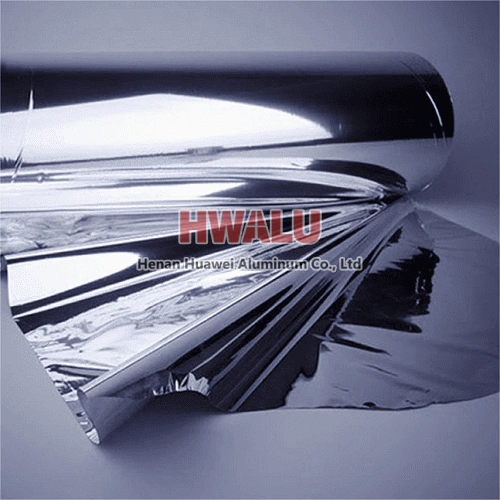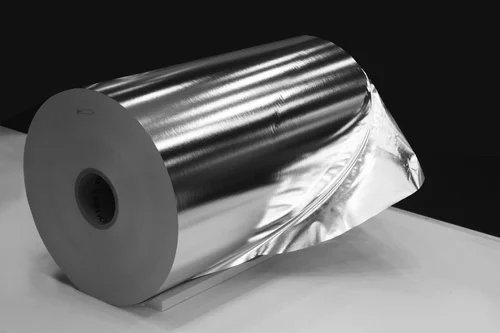Aluminum foil for heat seal product Aluminum foil heat seal coating is a common packaging material. Aluminum foil for heat seal has good moisture-proof, anti-fluorination, anti-ultraviolet and other properties, and can protect food, medicine and other items that are susceptible to external influences. Characteristics of heat sealing aluminum foil During the production process of aluminum foil heat seal coa ...
Aluminum foil for grills Aluminum foil for grilling is a versatile tool used in outdoor cooking. Grill foil is a thin, flexible sheet of aluminum that can be placed over your grill grates to aid in various aspects of grilling. Advantages of aluminum foil for barbecue packaging Aluminum foil is often used for barbecue packaging and has the following advantages: 1. Thermal conductivity: Aluminum foil has ...
so What is Aluminum foil grade 1235? 1235 Alloy Aluminum Foil is an aluminum alloy material commonly used in the packaging industry. It is as high as 99.35% pure, has good flexibility and ductility, and also has good electrical and thermal conductivity. The surface is coated or painted to increase its resistance to corrosion and abrasion. 1235 Alloy Aluminum Foil is widely used in food packaging, pharmaceu ...
What is 1050 H18 aluminum foil 1050 H18 aluminum foil is an aluminum foil material with high purity and good mechanical properties. Among them, 1050 represents the grade of aluminum alloy, and H18 represents the hardness level. 1050 aluminum alloy is an aluminum alloy with a purity of up to 99.5%, which has good corrosion resistance, thermal conductivity and machinability. H18 represents the aluminum foil aft ...
what is Aluminum foil for capsule packaging? Compared with traditional capsule packaging materials, aluminum foil for capsule packaging has better moisture-proof, anti-oxidation and fresh-keeping properties, which can better protect the quality and safety of medicines. Reasons for choosing aluminum foil for capsule packaging Good moisture-proof performance: prevent the medicines in the capsules from moistu ...
Aluminum foil factories will pay special attention to the following details when processing aluminum foil: Cleaning: Aluminum foil is very sensitive to impurities, any dust, oil or other contaminants will affect the quality and performance of the aluminum foil. Therefore, before processing aluminum foil, the production workshop, equipment and tools must be thoroughly cleaned to ensure that there is no contamin ...
1-Moisture-proof and anti-oxidation: Aluminum foil paper can effectively prevent food from getting wet and oxidized and cause deterioration, so as to maintain the freshness and taste of food. 2-Thermal insulation: The thermal conductivity of aluminum foil paper is very low, which can effectively insulate heat and prevent heat loss. 3-Blocking UV rays: Aluminum foil can effectively block UV rays and protect ...
0.03mm thick aluminum foil, which is very thin, has a variety of potential uses due to its properties. Some common applications of 0.03mm thick aluminum foil include: 1. Packaging: This thin aluminum foil is often used for packaging purposes such as wrapping food items, covering containers, and protecting products from moisture, light, and contaminants. 2. Insulation: It can be used as a thin layer of insul ...
▌ Make bananas last longer Like avocados, bananas can go from underripe to overripe in the blink of an eye. This is because bananas release a gas called ethylene to ripen, and the stem is where the most ethylene is released. One way to prevent bananas from ripening too quickly is to wrap a small piece of aluminum foil around the stem. ▌ Polishing chrome with aluminum foil It can be used in places ...
Aluminum alloy 1350, often referred to as "1350 aluminum foil", is a pure aluminum alloy with a minimum aluminum content of 99.5%. While pure aluminum is not commonly used in pharmaceutical packaging, aluminum and its alloys (including 1350 aluminum) can be used in pharmaceutical packaging after proper processing and coating. Pharmaceutical packaging requires certain properties to ensure the safety and preserv ...
8011 aluminum foil is a common aluminum alloy material, which has received extensive attention and application due to its good performance and wide application fields. Below, we will introduce the characteristics and advantages of 8011 aluminum foil from various aspects. First of all, 8011 aluminum foil has excellent corrosion resistance. Aluminum foil itself has good oxidation resistance, and 8011 aluminum fo ...








